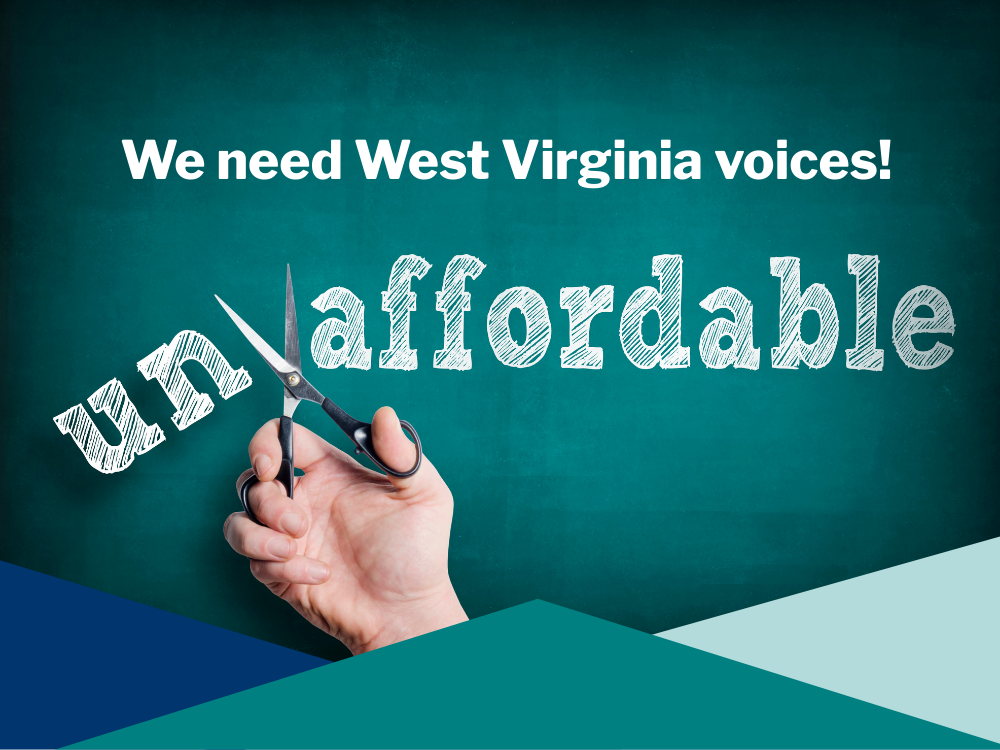- Like
- Digg
- Del
- Tumblr
- VKontakte
- Buffer
- Love This
- Odnoklassniki
- Meneame
- Blogger
- Amazon
- Yahoo Mail
- Gmail
- AOL
- Newsvine
- HackerNews
- Evernote
- MySpace
- Mail.ru
- Viadeo
- Line
- Comments
- Yummly
- SMS
- Viber
- Telegram
- Subscribe
- Skype
- Facebook Messenger
- Kakao
- LiveJournal
- Yammer
- Edgar
- Fintel
- Mix
- Instapaper
- Copy Link
Because of rising inflation and increasing food prices over the last couple of years, demand for the Woman, Infants & Children’s nutrition program (WIC) has increased tremendously, but the programs funding hasn’t, despite higher-than-expected participation and need.
Without more funding, WIC could face a shortfall this year that could result in over 2 million young children and pregnant and postpartum mothers being denied nutrition benefits. In West Virginia, up to 11,000 moms and kids could go hungry without food that they are legally eligible to get through WIC if the program runs out of money due to increased demand.
Although we’ve made progress this year lowering inflation and reducing prices of some basic goods, that’s not coming fast enough for millions of Americans. Many of us cannot defer basic needs–like food, shelter and healthcare until our economy improves. We need our lawmakers in Congress to act now to preempt harm.
For the past 25 years, we’ve always been able to depend on our lawmakers to put aside partisanship when it comes to a few key programs and issues, and nutrition is one of these. Policymakers have acted on a bipartisan commitment to provide nutrition services through the Special Supplemental Nutrition Program for Women, Infants, and Children (WIC) for everyone who is eligible. WIC provides food, breastfeeding support, and other vital services to low-income pregnant and postpartum moms, infants, and young children under age 5 who are at risk for poor nutrition and all the negative health consequences and life-long effects that come with it.
We all know that the same amount of money buys less food today than it did just a couple of years ago. It’s now time for Congress to acknowledge that reality and take action to address the coming shortfall in WIC so that everyone can get basic nutrition they need.
Academic studies show that every dollar spent on WIC saves $2.48 by cutting health care costs that result from hunger. Nutritious and sufficient food during pregnancy and in the early years of a child’s life have dramatic implications for the future health of the mother and the child. Research shows that WIC helps improve health for babies, toddlers and preschoolers and contributes to improved health and economic outcomes in later life.
Beyond being a sound common-sense investment, increasing funding to feed young children and pregnant or new mothers is the right thing to do given the tremendous wealth and capacity of our nation. At the end of November, the collective wealth of America’s 741 billionaires grew to $5.2 trillion, the highest amount ever recorded. Thanks to the 2017 tax law, many billionaires can hold onto their wealth tax-free or by paying a lower tax rate than many middle class workers like teachers or firefighters because of loopholes that allow them to avoid paying what they owe.
The dilemma we face when it comes to WIC and other basic needs programs isn’t a financial one–it’s about priorities. After all, if we can afford to give billionaires million dollar tax breaks, then we can also afford to increase funding for a program that gives moms, babies, toddlers and kindergartners a better start in life. It’s a no-brainer that investments in kids should be a higher priority than tax breaks for some of the richest people on the planet.
It’s time for our lawmakers in Congress to focus on making sure every American–no matter where they live or how much money they have–is equipped with the basics to get a fair shot, be healthy and maximize their opportunity for a successful future. WIC is an investment in families and kids’ that benefits all of us in the future and requires action right now.



